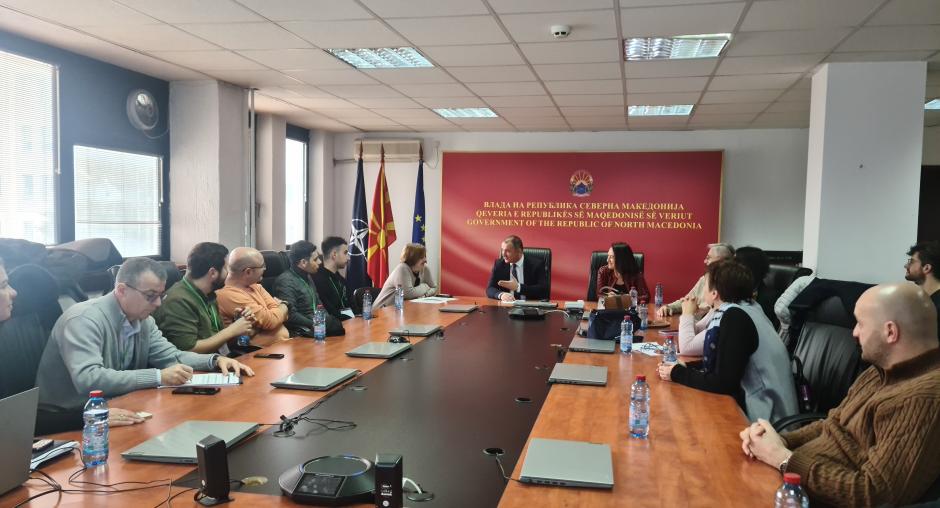Tackling wildfires in a changing climate – OSCE facilitates co-operation among emergency management and climate experts

On 5 and 6 December, representatives of national institutions responsible for fire management and climate change from Albania, Armenia, Azerbaijan, Bosnia and Herzegovina, Georgia, Mongolia, Montenegro, North Macedonia, and Serbia got together in a cross-regional workshop, Wildfire Management for Enhancing Climate Resilience and Security in Skopje, North Macedonia.
The workshop was organized by the Office of the Co-ordinator of OSCE Economic and Environmental Activities (OCEEA) in close partnership with the Global Fire Monitoring Center (GFMC) and the Regional Fire Monitoring Center for South-Eastern Europe and South Caucasus (RFMC).
“Climate change is increasing the frequency and severity of wildfires around the world and in the OSCE area,” said Esra Buttanri, Senior Advisor at the Office of the Co-ordinator of OSCE Economic and Environmental Activities. “The OSCE Ministerial Council Decision on climate change adopted in Stockholm in 2021 and the OSCE Ministerial Council Decision on disaster risk reduction adopted in Basel in 2014 guide us in our work to facilitate co-operation among our participating States in preventing, preparing for, and jointly responding to wildfires aggravated by climate change.”
Johann Georg Goldammer, Director of the Global Fire Monitoring Center, said: “In recent years we are experiencing an increasing occurrence of long-lasting heatwaves and droughts that are conducive for the occurrence of large wildfires. In order to reduce the risk of damage to the environment and society, we need to manage our natural and cultural landscapes to become resilient and less vulnerable to climate extremes and wildfires. Fires and smoke pollution crossing borders are calling for transboundary co-operation in fire management.”
Nikola Nikolov, Head of the Regional Fire Monitoring Center for South-Eastern Europe and South Caucasus, said: “This workshop is an excellent opportunity to exchange experiences and best practices and initiate collaboration at a regional level. Regional Fire Monitoring Center will actively support this process and ensure its synergies with other ongoing projects and initiatives.”
“Climate change is increasingly acting as a risk multiplier exacerbating existing security challenges. Strong co-operation at a regional level that increases resilience and improves neighbourly relationships is an important building block to address the security implications of climate change,” said Lukas Rüttinger, Senior Advisor at adelphi.
The workshop included discussions on how to integrate climate change considerations into wildfire management work, including at the community level, and explored opportunities for co-operation within and across regions. It also featured a visit to the Crisis Management Center of North Macedonia.
The cross-regional workshop, Wildfire Management for Enhancing Climate Resilience and Security was organized within the framework of the OSCE extra-budgetary project Strengthening responses to security risks from climate change in South-Eastern Europe, Eastern Europe, the South Caucasus, and Central Asia, which is implemented in partnership with the Berlin-based think tank adelphi and funded by Andorra, Austria, Czech Republic, Finland, France, Germany, Italy, Liechtenstein, Luxembourg, Norway, Poland, Sweden and the United States.
